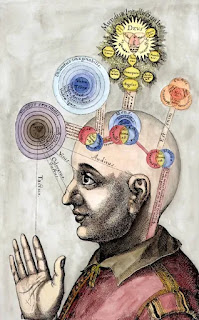I’m just going through our CC website stats to gather a list of our top 10 articles from 2021 and I found a surprise near the top of the list. It’s not an article from this year at all, it’s from 2018! Your column “Gnosticism and the Human Body” was viewed 1176 times this past year putting it at #7 most viewed article of the year.
I can’t include it in our top 10 list since it wasn’t published in 2021, but I figured you should know about it’s popularity.
I am glad she included a link to the article, which I had forgotten I had written. Here is an excerpt:
The Gnostics held that salvation is attained through a higher knowledge (gnosis in Greek) unavailable to most people. Borrowing from the philosopher Plato, they taught that redemption comes from nurturing the intellect and deprecating our corporeal existence. Because the mind was deemed superior to the body, captive as it is to the forces of decay and the messiness of ordinary existence, the Gnostics sought to free the mind from the prison of the body and managed to read this into Christian doctrine. The survival of an immortal soul after death replaced the biblical hope of bodily resurrection and a new heaven and new earth.
This Gnostic influence led in one of two possible directions: asceticism or antinomianism. While asceticism called for fleeing bodily pleasures, antinomianism took a different approach. If the body is of little importance compared to the soul, then, some reasoned, it matters not what we do with it. This led in some cases to drunkenness, gluttony and sexual promiscuity, against which the Apostle Paul wrote in his two letters to the church in Corinth.
The capstone to Paul’s theology of the body comes at the beginning of Romans 12: “I appeal to you therefore, brethren, by the mercies of God, to present your bodies as a living sacrifice, holy and acceptable to God, which is your spiritual worship. Do not be conformed to this world but be transformed by the renewal of your mind, that you may prove what is the will of God, what is good and acceptable and perfect” (RSV).
What we do with our bodies matters to our life in Christ because we are created as corporeal beings firmly embedded in God’s good, though fallen, creation.


No comments:
Post a Comment